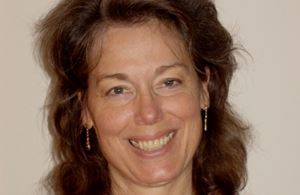
Ted Lennox was born blind. “I will never forget Ted. He learned blind skills at a young age and became a completely independent adult,” recalls Denise Robinson, TVI, Ph.D. Over 25 years ago, Lennox gave Robinson the vision for what was to come with technology and how technology could place the blind at an advantage in society. The vision set Robinson on a trajectory of integrating technology and education for the blind and visually impaired that is headed strong into the 21st century.
Robinson lost most of her sight in her early 20s. She was determined to learn blind skills because she could not visualize a life of sitting around while people did her work for her. And this is when she met Lennox, who Robinson describes as a “God man.” Lennox taught Robinson to use her ears and sense of touch. She began learning braille. Robinson also fell into a pattern of talking with God not only every day, but all day long.
Robinson’s sight started to return.
After six years, Robinson was able to see in bright light. Night blindness required 12 years to overcome. She registers 20/15 acuity now and the doctors call her a miracle. “God always takes what Satan means for evil and turns it into good. My eyes hemorrhaging decades ago took me into teaching for the blind,” explains Robinson. But Robinson doesn’t just teach the blind, she teaches them how to unlearn blindness and see a life full of possibilities.
Robinson earned her teaching certificate and began teaching the blind and visually impaired in the public school system. In her free time she taught herself about the latest technology. Robinson teaches students how to use technology to advance their independence. For example, with a laptop, set of headphones, and internet connection, students can sit in a classroom with sighted peers and match the application of skills being learned. Using keyboard commands, students can employ talking software and a braille display, download school books, finish homework and email it to their teachers.
“Integrating technology and education effectively isn’t easy because teachers need to know technology and students who deny their vision impairment will use the technology improperly,” remarked Robinson. Teachers are already busy in the classroom and it is difficult to keep up with technology. Children don’t mind learning technology, but they tend to learn the stuff adapted to the sliver of sight they have remaining instead of developing new knowledge. They struggle to control something they will soon lose. However, the students who learn and use technology designed for the senses they do have, expand those senses and succeed. “What no eye has seen, what no ear has heard, and what no human mind has conceived, the things God has prepared for those who love him, these are the things God has revealed to us by his Spirit.” (I Cor. 2:9, NIV)
In this human realm the temptation to attach oneself or others to a disadvantage is blinding and troublesome. Robinson relies on God for the strength and knowledge to see how to integrate properly technology and education to stimulate success and equality in society. “If people can’t see what God is doing, they stumble all over themselves; But when they attend to what he reveals, they are most blessed.” (Prov. 29:18, The Message) The vision of a life full of possibility, God, is being seen.
Cheryl Petersen blogs as Everyday Spirituality. Denise Robinson is stationed in Washington State and is owner/operator of www.YourTechVision.com

